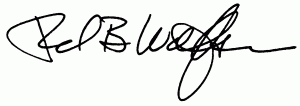In Response To: Are Docs Choosing Wisely?
April 18, 2014
On April 15th Jordan Rau of Kaiser Health News published a thoughtful article examining the Choosing Wisely campaign.
This type of analysis is a critical part of the transparent, honest dialogue about the issues of unnecessary medical care that we have sought to encourage since launching the campaign. That said, we think it is unfortunately shortsighted to measure the success of Choosing Wisely based on whether or not the physicians involved have cut their own income.
Since the Choosing Wisely campaign launched just over two years ago, more than 50 medical societies have answered this unprecedented call and released lists of tests or procedures to question within their own fields. These partner physician groups have shown tremendous leadership in kicking off an unprecedented and long overdue national conversation about what care is really needed and when.
The article also questioned whether one medical society should identify tests or procedures done by a different medical specialty as unnecessary. When physician groups provided recommendations that crossed in to other areas of medicine, it demonstrated the interconnectedness of our health care system. Radiology tests, for example, are ordered by myriad specialties.
Of course, while important progress has been made in starting this dialogue on waste, we agree that more work needs to be done. The article questioned whether or not the physician groups identified some of the most lucrative health care procedures as wasteful. The question is valid, although the usefulness of a medical test or procedure should be gauged by the outcomes it achieves for patients, not the income it generates for the health system.
As resources in our health care system are stretched, we need to ask ourselves hard questions. Does the health care community have the fortitude to stop ordering costly tests and performing procedures that are not supported by evidence? Will patients stop asking for them?
These are hard decisions that we need to make together, and we believe the physicians and specialty societies taking part in Choosing Wisely are in the best position to lead the way. As the experts in their specialty fields they are best positioned to identify the unnecessary tests, treatments and procedures included in the lists.
Patients also have an important role to play in these conversations. With the support of Consumer Reports, we need them to engage with their physicians and ask tough questions: Do I need this test? What are the risks? How much does it cost?
Only by getting physicians, patients and all health care stakeholders talking about what is truly necessary and challenging ourselves to identify unnecessary care can we truly achieve a goal of reducing wasteful practices ingrained in our system.

Daniel B. Wolfson
EVP and COO, ABIM Foundation


